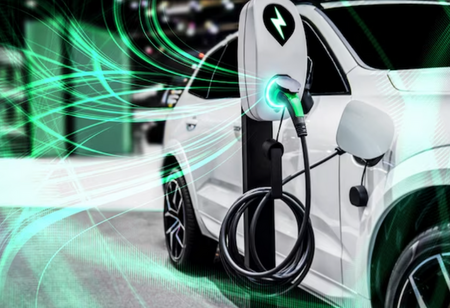
Governments and societies in general are becoming increasingly aware of pollution and taking numerous real actions to reduce carbon and other emissions that impact air quality. A typical passenger automobile, for example, emits roughly 4.6 metric tonnes of CO2 per year; thus, governments around the world are supporting the development of electric vehicles (EVs). Furthermore, price and range, which were formerly barriers to purchasing an EV, are rapidly being overcome.
India has big intentions to boost EV adoption throughout the country. By 2030, the FAME plan intends to reach 30% EV sales penetration for cars, 70% for commercial vehicles, 40% for buses, and 80% for two- and three-wheelers. As a result, the Indian EV market is expanding rapidly. India's EV sales topped one million units for the first time in 2022, representing a 206% year-on-year increase over 2021 EV sales figures.
The adoption of electric two-wheelers in India is booming, accounting for 55% of total EV sales in FY2022 alone. However, the country has recently experienced a few instances of battery-related fires in electric two-wheelers, as well as other incidences of poor battery quality and loss of life. This can be stopped if data on battery management can be obtained and analyzed, and data storage is a critical component.
The most significant component of an EV is its lithium-ion battery and BMS battery, and the lifespan of a standard lithium-ion battery is determined by the number of cycles. The number of cycles specifies how many times a battery may be charged and drained before losing capacity and eventually failing.
To comprehend most aspects of a battery, a demanding battery management system (BMS) that functions in severe and uncontrolled situations is required. The BMS collects and interprets information from sensors in the battery, such as current, voltage, and temperature, to ensure smooth battery functioning. The BMS also regulates the charger to ensure correct charging of the battery by preventing overcharging, among other things. It can assist in avoiding other serious anomalies that may emerge in the event of a battery failure. The BMS also monitors battery temperature and aids in thermal management. Overall, BMS may continuously analyze battery behavior. However, BMS used to have no data storage, making it impossible to collect and comprehend data regarding batteries and other auxiliary elements.
Battery makers now recognise the value of gathering data about batteries, such as whether or not they were charged adequately at the recommended current. As a result, BMS now have a storage slot for critical data, which can be crucial in improving battery life and other aspects such as reliability.
Storage Options that are Unique
It is also critical to realize that EV storage should be automotive quality, as EVs will be subjected to rain, hot summers, and cold winters. As a result, EV makers must comprehend the distinction between retail and auto-grade storage options. Retail cards, for example, are slightly less expensive than auto-grade SD cards, but they are not designed for the endurance and temperature tolerance required by EV BMSs.
EVs require storage solutions, such as Automotive SD Cards from Western Digital, which are designed and produced to fulfill the automotive market's stringent reliability, quality, and environmental requirements. These SD cards support AEC-Q100 temperatures (-40°C to 85°C) and include advanced firmware memory management capabilities like as error correcting code (ECC), wear-leveling, and bad block management. As a result, these SD cards are becoming popular among BMS and EV makers.
Data will continue to uncover potential in a variety of businesses, including the electric vehicle sector. The capacity of tech companies to continue to supply high-performance, high-endurance, and reliable storage, among other things, is critical to the future of EVs.

